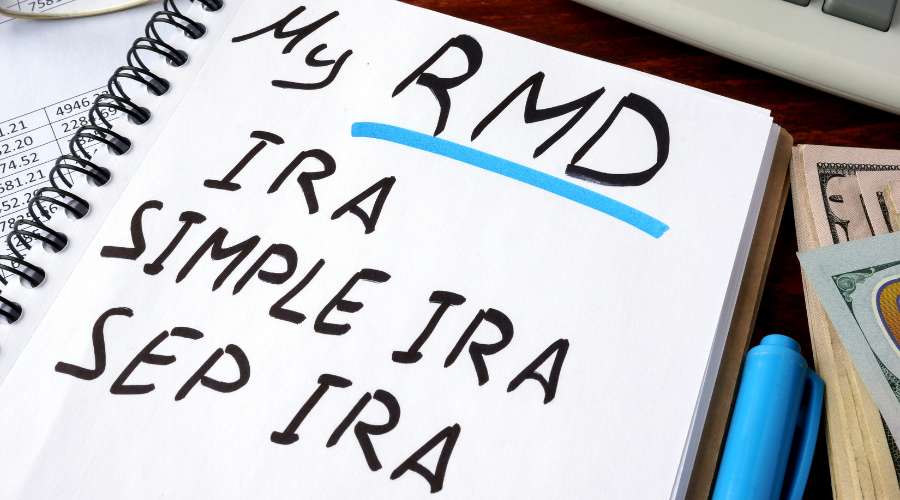If you consider investing in a gold IRA, you are likely curious about the tax implications. After all, tax deductions can be a major deciding factor in investing. Fortunately, investing in a gold IRA can be a great way to maximize your return on investment since many of the expenses incurred in the process are tax-deductible.
In this article, we will explain everything you need to know about gold IRAs, including the tax deductibility of investments. We will also guide you on optimizing your investment best to maximize tax savings.
If you are interested in investing, make sure to take a look at our highest recommended companies for this year!
>> Click Here For A List Of The 5 Highest Recommended Precious Metals Investment Companies <<
About Gold Investing

Precious metals have captivated humans for centuries. Historically, coins minted from precious metals like silver and gold were used as legal tender. Extremely precious metals were ultimately put to use in ornamentation and jewelry.
Not long ago, most countries pegged their currencies to the value of gold. Those days have passed, yet gold remains and is now more valuable than ever. Gold is one of the most well-liked non-traditional investing options because it is a globally traded commodity.
Gold's price surged in the early 2000s, attracting many would-be buyers. The tendency, however, began to shift back in 2010. A natural market correction occurred around that time, bringing gold investor expectations back to earth and allowing gold to store energy for the next bull market.
The appeal of gold as a portfolio diversifier has endured into the present day. Investing is about more than just annual returns. Many shareholders are also concerned with optimizing their after-tax returns. Tax considerations should factor into every financial decision you make.
The Different Types of Gold Investments
Traditionally, investors had to acquire physical gold through bars or coins. They would have to keep their gold in physical form until they could do so profitably. Several options exist for gold investment in today's market.
Physical Gold
Physical gold is one of the most popular types of gold investments. It's a tangible asset you can hold onto and is easy to store. There are a variety of forms of physical gold that you can invest in, such as coins, bars or jewelry.
Coins are the most common form of physical gold investment and the most liquid. They come in various sizes and weights and each coin has a face value. Gold bars are another popular form of gold investment and they come in various shapes and sizes, from small 1-ounce bars to large 400-ounce bars.
Investing in jewelry is a great way to benefit from the gold market while simultaneously enjoying the beauty of the pieces. However, since jewelry can vary in purity, it's important to make sure you buy from a trusted source.
Exchange-Traded Funds (ETFs)
ETFs track the price of gold, so when the price of gold rises and falls, you can expect your ETF to move similarly. Since ETFs are traded publicly, you can buy and sell them quickly and easily without worrying about storage or other hassles associated with physical gold ownership.
ETFs also tend to have lower costs than owning physical gold since the expenses associated with buying and storing the metal are eliminated. As a bonus, ETFs allow investors to diversify their portfolios more easily since they can hold shares of different gold ETFs.
Futures
A gold future is a contract between two parties to buy or sell a specified amount of gold at a predetermined price on a future date. The contract is legally binding and the buyer must pay the seller the agreed-upon price on the specified date.
Gold futures are traded on various exchanges such as the COMEX division of the New York Mercantile Exchange (NYMEX). They are also available through online brokers. To trade gold futures, you will need to open an account with a broker and deposit a margin amount.
When trading gold futures, investors can make money if the price of gold moves in their favor. They also can leverage their investment using margin. This means they can control a larger position than their actual capital outlay. On the downside, if gold prices go against them, they can experience large losses.
One important thing to remember when trading gold futures is that you are not buying any physical gold. You are simply speculating on the future price of gold.
Mining Stocks
Mining stocks are shares of publicly-traded companies that specialize in the exploration and extraction of minerals, such as gold.
When you invest in mining stocks, you're not only buying into a company's operations—you're also buying into their potential for future growth. For instance, if the company discovers a new gold-bearing deposit, its stock value will likely increase. Investing in mining stocks can be a great way to capitalize on future growth and make substantial returns.
On the other hand, since mining stocks are publicly traded, they're also subject to market fluctuations and can be risky investments. It's important to research before investing in mining stocks and understand the associated risks.
Taxation and Gold Investments

Gold investment presents some difficulties, particularly from a tax point of view. There are two primary paths open to investors; the first is buying gold and selling it after less than a year. Any profits you make from these trades will be considered either ordinary or short-term capital gains, depending on the circumstances.
The second case involves acquiring gold to sell after holding it for more than a year. Your transactions will be subject to ordinary income taxation at a maximum rate of 28%.
A major tax impact will result from the above for most gold investors. For a long time, people have been looking for tax-efficient ways to invest in gold that don't involve buying physical bullion. Gold IRAs are one of the most cost-effective ways to diversify your portfolio.
In the following part, we'll discuss gold IRAs and explain how investing in an IRA might boost your after-tax return.
Taxes and Gold IRAs
In 1974, IRAs became available to people voluntarily. They were promoted as a means of saving for old age. Withdrawals from individual retirement accounts (IRAs) were taxed only when the investor received them.
Investors could defer paying taxes on their capital gains and reduce their overall tax liability using an IRA. When IRAs originally became available, non-traditional assets like art were not permitted. In 1986, the Internal Revenue Service modified its policy and allowed citizens to invest in silver and gold US coins.
As of 1998, the IRS broadened this definition to include at least 99.5% purity bullion. However, the most notable change occurred in 2007. In that year, the Internal Revenue Service clarified that putting money into gold ETFs through an IRA did not qualify as investing in rare items. Many investors still exercise this choice today.
However, there are limits on how much gold can be purchased with an IRA from the Internal Revenue Service. As a first step, you cannot be in possession of the gold you are investing in; instead, it must be held by a third party that has been pre-approved by the relevant authorities.
As a result, this also entails shelling out money yearly for storage. Don't fret; gold IRAs remain an excellent way to build your nest egg.
Consider critical things to get the most out of your gold IRA investment. Traditional Individual Retirement Accounts (IRAs) are the most common vehicle for purchasing gold. Even after taxes, the returns are higher than those offered by Roth IRAs.
You will owe taxes on any profits from selling gold in your IRA. Additional costs and taxes apply to IRAs that contain gold. Withdrawing money before the specified time will cost you a 10% penalty.
Investments in gold held in an IRA are exempt from the collectible tax rate of 28%. Your tax rate will be the marginal rate. Due to this law, those with the highest tax rate will have to fork out more than 28 percent of their income in taxes.
According to this information, your income level is based on your tax rate. On the other hand, investment losses are deductible, so you may write them off if they occur. Distributions from your IRA must begin by the time you're 70.5 years old, so keep that in mind.
Tax Treatment of Different Types of Gold IRAs

There are three different types that you may be considering. Each gold IRA type has its unique tax treatment, so it's important to understand their differences.
Why Add Gold to Your IRA?
An IRA safeguards your retirement and your family's financial stability. You can save tax-free money for the future with these special accounts.
To ensure a secure, pleasant and worry-free retirement, it is crucial to invest a sizable amount of these long-term savings in stable and reliable assets. Although a cash IRA may seem secure, the steady rise of inflation is eroding its value.
Gold is the best suitable asset since it is real, reliable and stable; its value does not depreciate with time and it rises. Investors are taking precautions by storing physical gold in IRAs as the global economy struggles amid lockdowns, shortages, conflicts and inflation.
Unlike most investments, gold IRA holdings increase in value during economic turmoil. To take financial risks means to be aware of potential threats but to take no action to mitigate them.
Protecting one's financial future is as simple as opening a gold IRA and being aware of the risks one faces in the current economy.
How Do You Add Gold to Your IRA?
You'll need to open a self-directed IRA to get started with a gold IRA. This type of IRA gives you more control over the investments you make in your retirement account. Once the account is opened, you can add gold to your IRA.
First, you'll need to decide which type of gold you want. Bullion coins, American Gold Eagles and gold bars are the two most common types. Next, you'll need to find a dealer who specializes in selling gold for IRAs. You'll need to research to find a reputable dealer with competitive prices.
Once you've found a dealer, you'll need to purchase the gold from them. You'll need to complete paperwork verifying that you're purchasing the gold for your IRA. Your dealer will then provide you with a receipt for the gold you purchased.
You'll then need to transfer the gold to a secure storage facility. Many dealers have storage facilities, but you can also choose an independent storage facility. Your gold will be stored safely and securely until you decide to withdraw it.
The final step is to inform your IRA custodian of the gold purchase. Your custodian will need to record the purchase in your account and provide you with information on how to access your gold if you decide to withdraw it.
Strategies to Minimize Taxes on Your Gold IRA

Several strategies can be used to reduce the taxes you may owe regarding your gold IRA.
Bottom Line
When it comes to gold IRA investing, one of the most common questions is whether or not a gold IRA is tax deductible. The short answer is that it depends on what type of Gold IRA you have.
If you have a traditional Gold IRA, contributions are not tax-deductible; withdrawals are taxed as ordinary income. This means you will be taxed on the profits when you withdraw funds from your traditional Gold IRA.
On the other hand, if you have a Roth Gold IRA, contributions are tax-deductible, but withdrawals are not taxed. That means you can still benefit from tax-free growth when investing in a Roth Gold IRA.
Whether you choose, investing in a gold IRA can be a great way to diversify your portfolio and secure your retirement savings. We highly recommend investing in gold IRAs through our trusted gold IRA companies.
They offer excellent customer service, secure transactions and a wide variety of gold products. Investing in gold is a great way to secure your financial future, so don't wait any longer - start investing in gold today!
Don't forget to check out our top recommended companies before investing!
